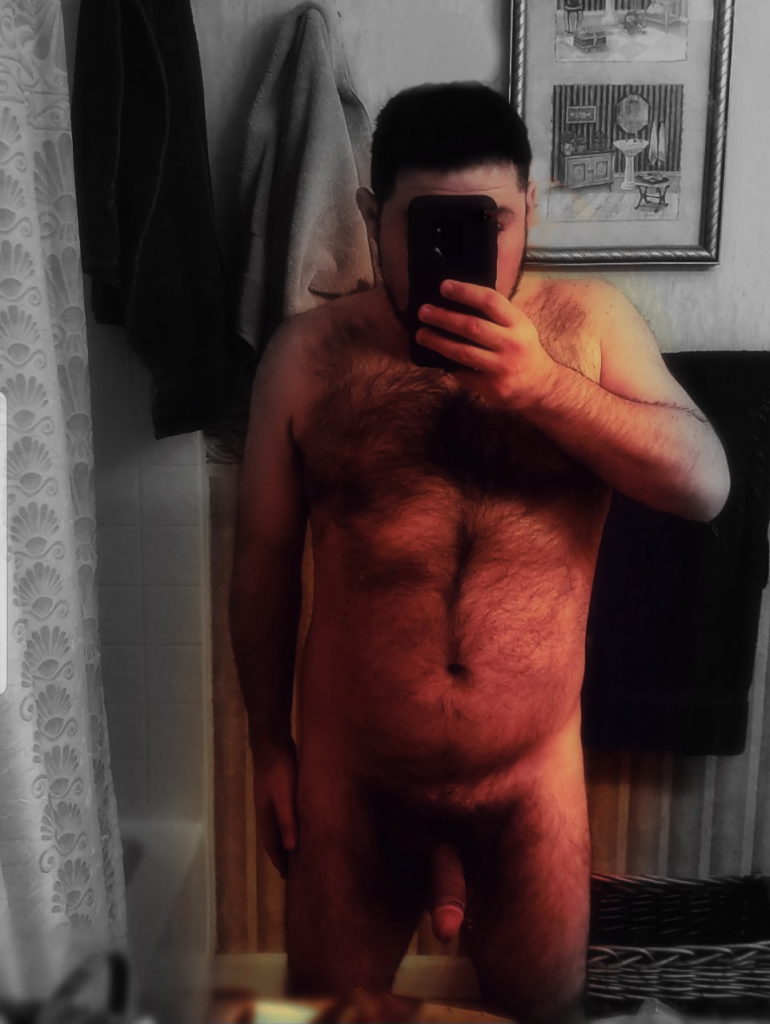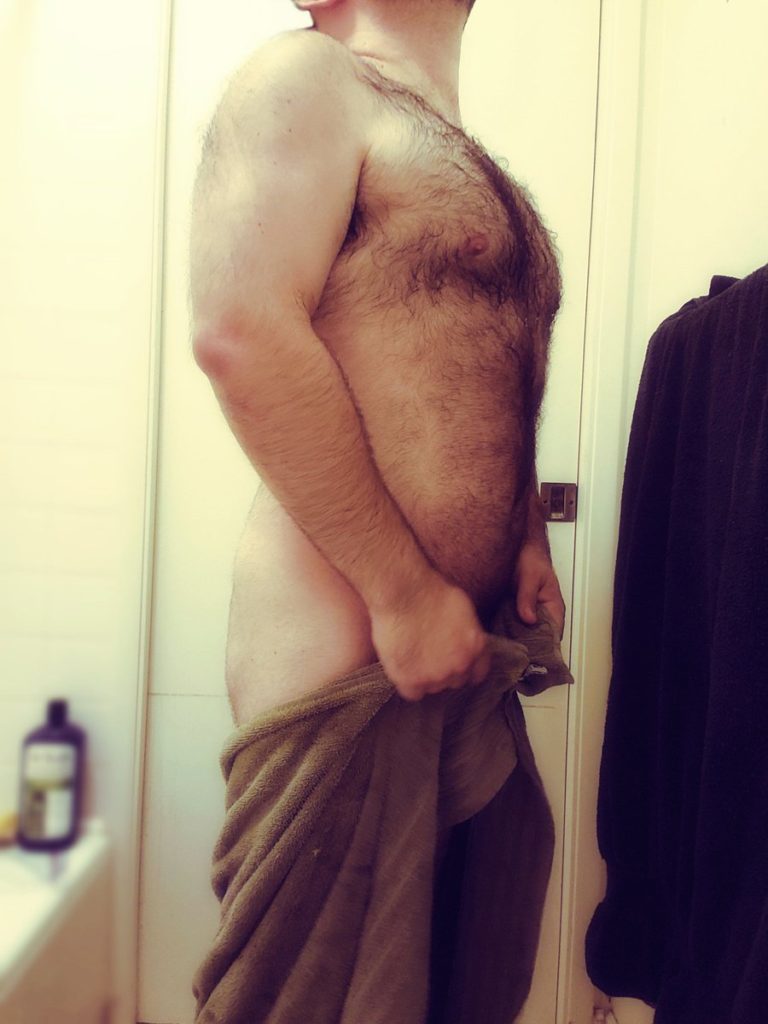If you missed part one of this three-part series, read it here.
Just as I didn’t understand that racism can and does exist in a form less overt than racial slurs and lynching, I didn’t always grasp that a man doesn’t have to put his hands on somebody, or even be in the same room with them, in order to violate their consent. And that’s pretty disappointing in retrospect; for someone who’d rather hurt himself than another person, it can be difficult and even shameful to acknowledge that your idea of harm doesn’t align perfectly with that of the person at risk.
And that’s not to say that these violations were the sort to drive a person to see a therapist, join a support group, or take anti-anxiety meds. But just because something isn’t on the more extreme or offensive side of the spectrum doesn’t make it right. Not to mention that even if the only side effect is the other person thinking you’re just another clueless, entitled male, that’s still pretty hard to live down, at least for me.
There’s been much said about unsolicited cock shots, certainly by individuals more qualified to speak about them than myself. To my credit, I’ve never been one to lead with a photograph of my penis, glorious though it may be. I’ve always been a fan of more traditional greetings along the lines of “Hello”, at least when opening communication with someone for the first time. So the thought of someone springing such a picture on an unsuspecting person who has given them no reason to think such a thing is welcome is abhorrent to me. At best, it is ignorance born of entitlement and apathy, and at worst it is malicious visual assault; either way, it sucks.
These days it’s rare that I send a cock shot to a woman, but when it happens I treat the transaction like a drug dealer who’s wary of entrapment: The recipient needs to state in no uncertain terms what they want me to send, even if we’ve spent the last two hours mutually masturbating via private message and trading dirty talk and sexy photos. Departing from the drug dealer parallel, this is not because I want to cover my own ass from a legal perspective but because I would feel like shit if I misinterpreted the rhythm of the conversation and sent the other person something they didn’t want to see. But I don’t think I was always this conscientious.
In the past I might have sent a cock shot on the assumption that, based on the steamy conversation we were having, the other person must have wanted to see it: “She’s mentioned my cock half a dozen times in the last four messages and has talked about putting it in multiple places on her body. I’d better show her what she’s dealing with.” I might have sent a cock shot if I’d done so by request in a previous conversation: “She’s seen it before and liked it, so she’s fine seeing it again.” I’d like to think I never sent one out of the blue to a person who’d seen it before, i.e. outside of an ongoing conversation without verifying that it was a good time to do so, to say nothing of whether she even wanted to see it again; however, I can’t guarantee that this is true. Hell, I’m pretty sure I once sent someone a cock shot in the midst of several non-sexual photos in a misguided attempt to be cheeky or flirty or whatever.
On a completely different tact – though still related to consent – over the last few years I’ve noticed many bloggers and Twitter users, especially those who write about sex and relationships or who share sexual photos, decrying the use of terms of endearment such as “babe”, “sweetheart”, “sweetie”, “dear”, and “honey” by random men who don’t know them well enough to address them in such a fashion. It is a perfectly understandable perspective; using any of these pet names suggests familiarity where none actually exists. And while I’m sure many men who are guilty of doing so consider it complimentary, it’s actually pretty disrespectful.
Anyway, I wish I’d noticed many bloggers and Twitter users decrying this practice a decade ago because it’s definitely something of which I have been guilty. The following may sound like responsibility-dodging at its worst, but it literally never occurred to me that this sort of thing could be seen as disrespectful until I noticed a groundswell of opposition amongst the women I follow on Twitter (and the women those women follow and retweet). Call me a typical ignorant male, but I just figured it was a pleasant way of referring to someone whose actual name I don’t know. The idea that it wasn’t my place to do so, or even that any given woman might not like any possible form of address I might use, was something I unfortunately needed to be told.
When I asked for the thoughts of my Twitter friends, BeingBella said, “It’s a total turnoff to have someone I don’t know well call me ‘babe’, ‘hun’, ‘doll’, etc.”
DearSweetSub offered, “I’m not a fan. I feel like pet names are earned.”
“I dislike it,” said Miss Scarlet. “Especially babe. Terms like that make my skin crawl.”
And according to Sophic Siren: “To me there’s a difference between using a pet name and using those terms, which a lot of people raised rural and/or southern use routinely, generally indicating being warm / friendly / welcoming/ nonthreatening. It can create unintential friction based in cultural differences. Case in point: Not long ago I got upset someone I didn’t know was calling me sis. I finally asked them to stop. Later, I realized it was a cultural thing. To them it was generally nice, like I use sweetie etc. To me sis is special. But fine if I’d understood cultural context. I try to remember but I was raised rural midwestern and it’s just such an ingrained thing in my everyday language I often don’t realize I’m doing it. I do make a point of not doing it with men I want to go stop bothering me, because I don’t want to convey being open or friendly.”
As I was wrapping my head around this revelation I considered that none of the women I’d addressed in a familiar way had ever told me that they prefer I not do so. I remembered the mea culpa I’d use as a much younger man when the woman I was dating expected me to know exactly what I was doing wrong without being told: “I’m not a mind reader!” And it’s true that without admonishment bad behavior is not likely to change, but I had to consider the position of the woman being addressed: A man who feels sufficiently entitled to use an impersonal pet name when speaking to a woman is likely to feel sufficiently entitled to call that woman a cunt when she politely corrects him, or maybe even do worse in retaliation for damaging his fragile ego.
I have apologized to women to whom I’ve done this. Generally speaking the apology is brushed off as though it’s no big deal, but I still feel retroactively foolish for the social faux pas. It’s not unlike the time I accidentally stepped on the tail of my friend’s dog. That was twenty years ago, and every time I see my friend or even drive down his street I can’t help but remember poor Fido yelping in pain.
These days I see the responses to the average sexy photo posted by a woman, whether on Twitter or some other platform, and it’s enough to make me wince. Beyond the expected grammar, spelling, and punctuation mistakes, all the instances of “baby”, “darling”, and “love” come off as exceedingly creepy, the digital equivalent of being pawed by a locker room’s worth of men who believe it’s their right. At best it’s clueless, while at worst it’s an insidious attempt to imply possession: “My use of this word to address you is an assertion that you exist to titillate me.” It’s just gross.
The woman being addressed in this way is often sharing something sexual, often involving her body. This is risky enough given how willing we as a society are to respond to a woman’s sexual agency with slut-shaming and rape threats; having a bunch of throwback miscreants crawl out of the sludge to pelt her with presumptuous expressions of unwarranted intimacy is just adding insult to injury.
Throughout my life I’ve had no trouble acknowledging that I’m not perfect. However, it’s always been my intention to come close. In my single days I used to tell the women I dated that I wasn’t perfect, but that I’d do my best to convince them otherwise. And generally-speaking, I think I did well. Not always great. Maybe not always good, even, but I never deliberately caused harm, and when I did so inadvertently I always tried to make amends. Still, it can be humbling to come face-to-face with the reality that you were sometimes way off the mark, especially after decades of the world kissing your ass just because of the societal cohort to which you belong.
If I was this clueless then, it stands to reason that I’m similarly misguided about other things now. Sometimes I wonder what views or actions I might regret in a few years. What everyday behaviors might be seen as microaggressions in the future. But given my self-awareness I can’t foresee anything specific that is part of my life today being undesirable in five years. I’m not saying there won’t be anything, only that I can’t predict it. So I remain facing forward. I can only strive to do my best, and hopefully be better than I was the day before.







